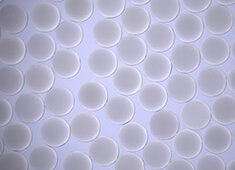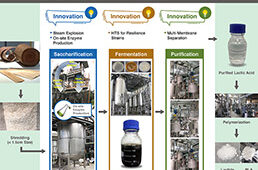A
team of scientists at the Catalan Institute of Nanotechnology has
significantly improved the resolution level of nanomechanical resonators
which has been have been used to weigh cells, biomolecules and gas
molecules, and to study basic phenomena in surface science, such as
phase transitions and diffusion. Measurement sensitivities of 100 yg
(yoctograms) have already been achieved in the laboratory.
These
experiments all rely on the ability of nanomechanical mass sensors to
resolve small masses based on changes in resonant frequency. The smaller
the resonating device is, the higher the potential resolution.
Researchers have typically used strips of silicon carbide or carbon
nanotubes to produce highly sensitivity resonant mass sensors, but none
have reached the level of sensitivity achieved by Adrian Bachtold and
his team members.
Previous
scales could only measure down to 100 yg, but the team recently
published a report in Nature Nanotechnology that describe mass sensing
experiments with a resolution of 1.7 yg (1 yg=10?24 g), which
corresponds to the mass of one proton. The resonator is a carbon
nanotube of length ~150 nm that vibrates at a frequency of almost 2 GHz.
In
the device, the nanotube is positioned over a trench and contact with
particles produces resonant frequency changes. To shorten the nanotube
to 150 nm, the team narrowed the trench width to that length.
According
to a report in New Scientist, the mass sensor operates in a vacuum and
the nanotube was heated to remove any stray atoms. Although the sensor
can conceivably be used to measure single protons, the unprecedented
level of sensitivity will likely be used by the researchers to answer
specific chemical questions, such as the adsorption events of
naphthalene molecules, and to measure the binding energy of a xenon atom
on the nanotube surface. According to Bachtold, these ultrasensitive
nanotube resonators could have applications in mass spectrometry,
magnetometry and surface science.
A nanomechanical mass sensor with yoctogram resolution
Sources: Nature Nanotechnology, New Scientist




